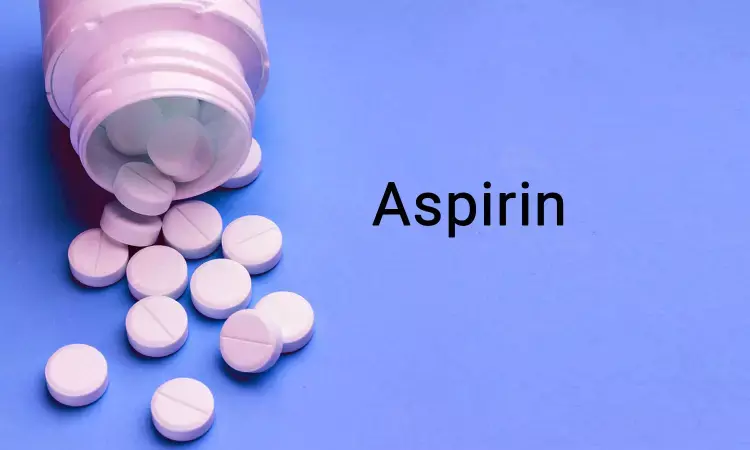- Home
- Medical news & Guidelines
- Anesthesiology
- Cardiology and CTVS
- Critical Care
- Dentistry
- Dermatology
- Diabetes and Endocrinology
- ENT
- Gastroenterology
- Medicine
- Nephrology
- Neurology
- Obstretics-Gynaecology
- Oncology
- Ophthalmology
- Orthopaedics
- Pediatrics-Neonatology
- Psychiatry
- Pulmonology
- Radiology
- Surgery
- Urology
- Laboratory Medicine
- Diet
- Nursing
- Paramedical
- Physiotherapy
- Health news
- Fact Check
- Bone Health Fact Check
- Brain Health Fact Check
- Cancer Related Fact Check
- Child Care Fact Check
- Dental and oral health fact check
- Diabetes and metabolic health fact check
- Diet and Nutrition Fact Check
- Eye and ENT Care Fact Check
- Fitness fact check
- Gut health fact check
- Heart health fact check
- Kidney health fact check
- Medical education fact check
- Men's health fact check
- Respiratory fact check
- Skin and hair care fact check
- Vaccine and Immunization fact check
- Women's health fact check
- AYUSH
- State News
- Andaman and Nicobar Islands
- Andhra Pradesh
- Arunachal Pradesh
- Assam
- Bihar
- Chandigarh
- Chattisgarh
- Dadra and Nagar Haveli
- Daman and Diu
- Delhi
- Goa
- Gujarat
- Haryana
- Himachal Pradesh
- Jammu & Kashmir
- Jharkhand
- Karnataka
- Kerala
- Ladakh
- Lakshadweep
- Madhya Pradesh
- Maharashtra
- Manipur
- Meghalaya
- Mizoram
- Nagaland
- Odisha
- Puducherry
- Punjab
- Rajasthan
- Sikkim
- Tamil Nadu
- Telangana
- Tripura
- Uttar Pradesh
- Uttrakhand
- West Bengal
- Medical Education
- Industry
Ticagrelor plus aspirin reduced stroke risk by 27% in patients with heart plaque: Study

DALLAS - Patients with plaque build-up in their arteries, who suffered a transient ischemic attack (TIA) or a minor ischemic stroke, also called a warning stroke, and were treated with the newer blood thinner ticagrelor plus aspirin were 27% less likely to have another stroke within 30 days, according to late-breaking research presented today at the American Heart Association's Scientific Sessions 2020. The virtual meeting is Friday, November 13-Tuesday, November 17, 2020, and is a premier global exchange of the latest scientific advancements, research and evidence-based clinical practice updates in cardiovascular science for health care worldwide. The manuscript of this study is simultaneously published today in Stroke, a journal of the American Heart Association.
In this sub-analysis of the THALES trial, The Acute Stroke or Transient IscHemic Attack Treated with Ticagrelor and Aspirin for PrEvention of Stroke and Death trial, ticagrelor benefitted patients with plaque build-up in their arteries (atherosclerosis) more than patients whose stroke had another cause. These findings, coupled with previous research, show a combination of both ticagrelor and aspirin is more effective than either medication alone.
"In our opinion, health care professionals should now consider both ticagrelor and aspirin to prevent another stroke in patients who experience a warning stroke. Our research shows treating patients within 24 hours of their first symptoms using this newer regimen is effective, especially when the cause of the stroke is due to plaque build-up in the arteries," said the study's lead author Pierre Amarenco, M.D., professor of neurology at Paris University and chair of the department of Neurology and Stroke Center and the SOS-TIA clinic at Bichat hospital in Paris, France.
Of the more than 11,000 participants originally enrolled in the multinational THALES trial (conducted in 2018 and 2019), about one in five (2,351) had plaque build-up in their arteries. Researchers randomized those patients into two groups - aspirin plus ticagrelor or aspirin alone - to identify whether the combination of medications was a more effective treatment than either medication on its own.
After an initial dose of 180 mg, researchers added 90 mg twice a day of ticagrelor to 75-100 mg of daily aspirin for one month, and the risk of another stroke or death was reduced by 27% among these patients.
The THALES trial is a randomized, placebo-controlled, double-blind, international, multi-site study. It is currently in Phase III and began in January of 2018.
Hina Zahid Joined Medical Dialogue in 2017 with a passion to work as a Reporter. She coordinates with various national and international journals and association and covers all the stories related to Medical guidelines, Medical Journals, rare medical surgeries as well as all the updates in the medical field. Email: editorial@medicaldialogues.in. Contact no. 011-43720751
Dr Kamal Kant Kohli-MBBS, DTCD- a chest specialist with more than 30 years of practice and a flair for writing clinical articles, Dr Kamal Kant Kohli joined Medical Dialogues as a Chief Editor of Medical News. Besides writing articles, as an editor, he proofreads and verifies all the medical content published on Medical Dialogues including those coming from journals, studies,medical conferences,guidelines etc. Email: drkohli@medicaldialogues.in. Contact no. 011-43720751


